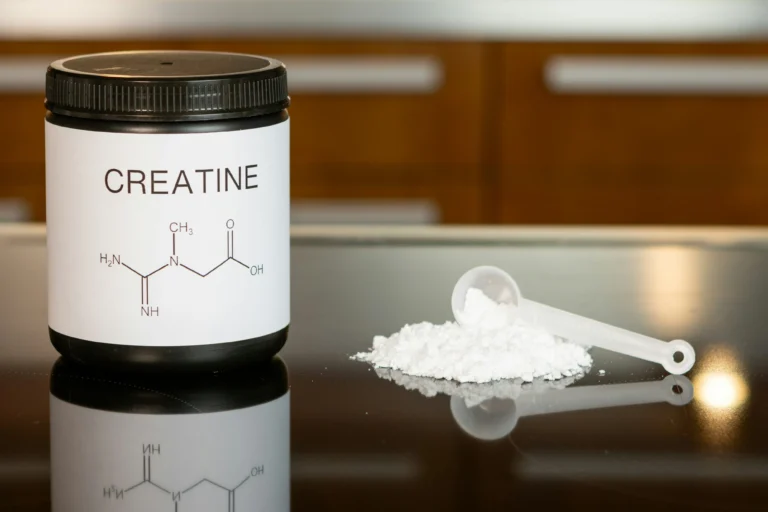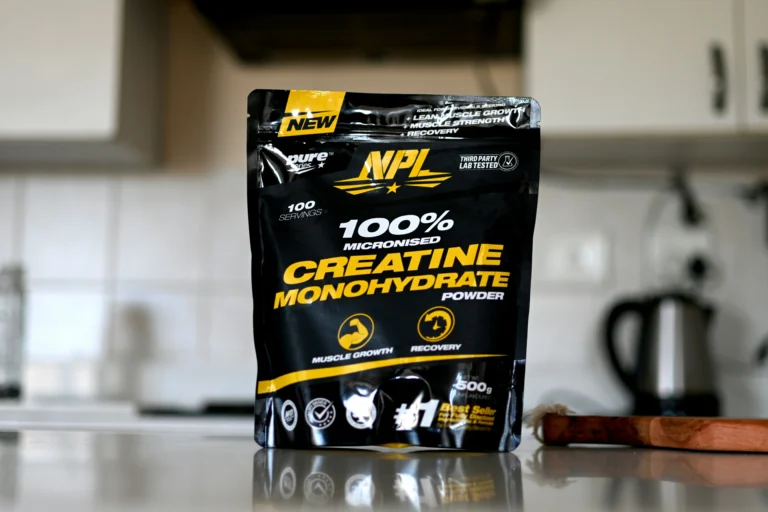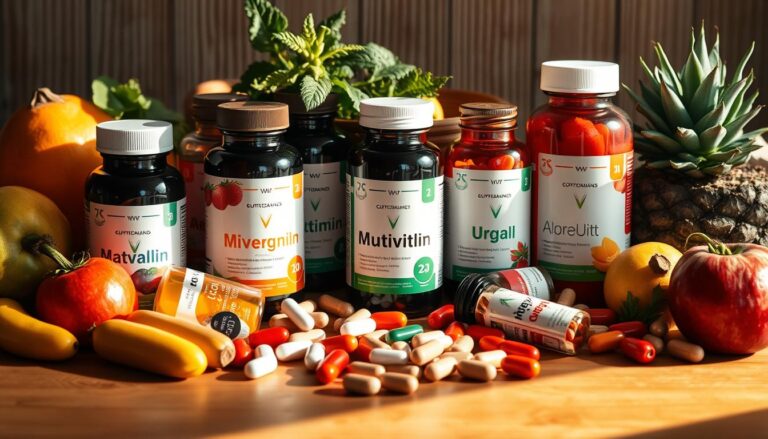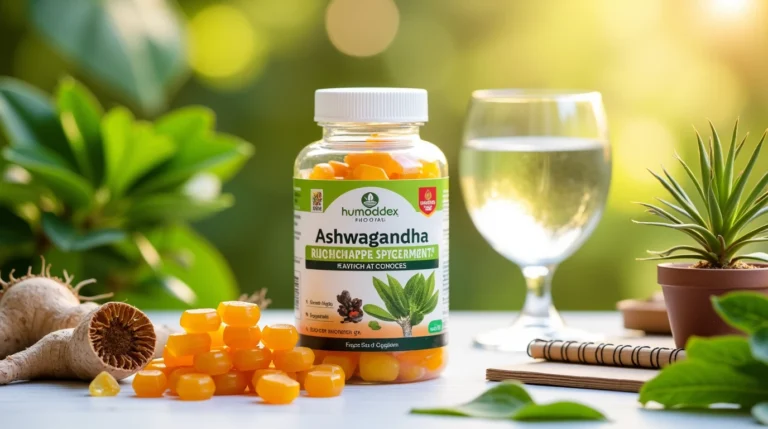Glutamine And Why It Is Important
Ever felt totally drained after a tough workout? Wondered how to get back to full energy faster? L-glutamine might be the key your body needs. It’s the most common amino acid in your body, making it a top choice for athletes and fitness fans looking to improve their performance and recovery.
L glutamine is key for your body’s energy, muscle health, and overall well-being. It doesn’t matter if you’re a pro athlete or just work out on weekends. Knowing the benefits of glutamine and why it is important can change your fitness journey and help you reach new heights.
This amino acid is more than a supplement. It’s a smart way to boost your body’s natural recovery. It helps with muscle growth and strengthens your immune system. Amino l-glutamine powder offers a full package for health and performance.
Table of Contents
Key Takeaways
- L-glutamine is the most abundant amino acid in human body
- Supports muscle recovery and energy production
- Helps prevent muscle breakdown during intense exercise
- Recommended daily dosage ranges from 5-10 grams
- Provides comprehensive support for athletic performance
Understanding Glutamine: The Most Abundant Amino Acid in Your Body
Glutamine is the most common amino acid in your body. It’s key for cell function and making proteins. As part of amino acid powder, glutamine boosts your health and performance.
Essential vs. Non-Essential Amino Acids
Amino acids are not all the same. They fall into two main groups:
- Essential amino acids: Your body can’t make them, so you need to eat them.
- Non-essential amino acids: Your body can make them on its own.
Glutamine is a conditional non-essential amino acid. Usually, your body makes enough glutamine. But, during stress, illness, or hard workouts, you might need more.
L-Glutamine vs. D-Glutamine Types
It’s important to know about the two types of glutamine:
| Form | Characteristics | Body Utilization |
|---|---|---|
| L-Glutamine | Biologically active form | Primary form used in protein synthesis |
| D-Glutamine | Less biologically active | Limited metabolic significance |
Role in Protein Synthesis
L-glutamine is crucial for making proteins. It helps muscles recover and grow. It also helps transport nitrogen, keeping muscle mass and aiding in healing.
The Science Behind L-Glutamine’s Role in Energy Production
L-glutamine is a key amino acid that drives important metabolic processes in your body. It’s the most common amino acid in plasma, crucial for energy and cell function. About 70% of your body’s glutamine comes from skeletal muscle, playing a big role in your metabolism.
The way l glutamine works in energy is quite interesting. When you’re doing intense activities or under stress, your body uses more glutamine than it makes. This is why sports nutrition is so important. Glutamine is a vital energy source for immune and digestive cells.
- Supports cellular energy metabolism
- Helps maintain muscle nitrogen balance
- Provides fuel for immune and intestinal cells
Glutamine does more than just provide energy. It helps make arginine, which is important for nitric oxide. More nitric oxide means better blood flow and nutrient delivery to muscles.
Research shows glutamine’s great benefits. It can help keep muscle strength, reduce soreness, and aid in recovery. For athletes and those who are active, l glutamine is a smart choice to boost metabolic performance and energy.
Amino L-Glutamine Powder: Benefits for Athletic Performance
Athletes and fitness fans always look for ways to get better at recovery and keep their muscles lean. Amino l-glutamine powder is a strong supplement that helps in many ways.
Professional athletes know glutamine is the most common amino acid in blood and muscles. Taking it as a supplement can really help with training and staying strong.
Pre-Workout Performance Boost
Before hard workouts, amino l-glutamine powder gets your body ready. It helps in several ways:
- Stabilizing blood sugar levels
- Supporting energy production
- Preparing muscles for high-intensity exercise
Post-Exercise Recovery Support
Glutamine helps your body recover faster after exercise. Studies show it can:
- Reduce muscle soreness
- Shorten recovery time
- Boost immune system function
Muscle Preservation Strategies
Glutamine is key in keeping muscles strong, even if it doesn’t build them directly. Athletes usually take 5 to 10 grams daily to help with their training and keep muscles intact.
Recommended timing: Take amino l-glutamine powder right after working out and before bed for best results.
Adding amino l-glutamine powder to your diet can improve recovery, help keep muscles lean, and boost athletic performance.
Natural Sources of Glutamine in Your Diet

Learning about foods rich in glutamine can boost your nutrition naturally. Your body makes glutamine, but adding certain foods can increase your amino acid intake. Foods high in protein are especially good for keeping glutamine levels up.
Animal proteins are the best sources of glutamine. You can include:
- Beef (highest glutamine concentration)
- Chicken and turkey
- Fish and shellfish
- Dairy products like eggs, milk, and yogurt
Plant-based foods also offer glutamine and nutrition. Adding these to your meals is a good idea:
- Nuts (especially almonds)
- Tofu and legumes
- Vegetables like corn and cabbage
- Whole grains such as rice and oats
Glutamine and protein are closely linked. Try to eat a variety of proteins to get all the amino acids your body needs. Remember, variety is key to comprehensive nutrition.
Your body produces about 40-80 grams of glutamine every day. Adding dietary sources is a great way to support your body’s production.
While supplements are available, focusing on whole foods is a better way to meet your glutamine needs.
How L-Glutamine Supports Immune System Function
Your immune system needs strong nutrients to stay healthy. L-glutamine is a key player in this fight. It’s the most common amino acid in your body. It helps white blood cells and keeps infections away.
L-glutamine does more than just feed your body. About 80% of your immune system is in your gut. This amino acid is vital for your defense. When you’re stressed or very active, your glutamine levels drop. This can weaken your immune system.
White Blood Cell Production
White blood cells need L-glutamine to work. When you’re stressed or exercising hard, they lose energy. Studies show that L-glutamine supplements can help:
- Support rapid white blood cell regeneration
- Enhance immune cell communication
- Help maintain cellular energy during stress
Infection Prevention Properties
L-glutamine is great at preventing infections. It’s been shown to lower infection risks, especially when you’re stressed. For people having surgery or dealing with serious illness, L-glutamine can:
- Reduce hospital stay duration
- Minimize post-surgical complications
- Support faster recovery processes
Most people need 2,000 to 5,000 milligrams of L-glutamine each day. Athletes or those under constant stress might need up to 10,000 mg. Always talk to a doctor before taking any new supplements.
Optimal Timing and Dosage for Amino L-Glutamine Powder
Knowing how to use amino l-glutamine powder is key to better post-workout nutrition. Athletes and fitness fans need clear advice on how to take supplements. This helps them perform better and recover faster.
The right amount of glutamine supplements depends on your fitness goals and how active you are. Studies show some important points:
- Post-workout consumption: 2-6g within 20 minutes after exercise
- Daily intake: 20-30g for optimal benefits
- Maximum safe daily level: 14 grams per day
When to take amino l-glutamine powder is just as important. Experts suggest taking glutamine supplements:
- 30 minutes before workout
- During exercise
- Immediately after training
If you have health concerns, talk to a doctor first. Your body weight, how hard you train, and what you eat can change what you need. This is why finding the right amount of glutamine is so important.
Athletes doing very intense training might see more benefits from glutamine supplements.
Your goals will guide how you use amino l-glutamine powder. It’s for muscle recovery, boosting your immune system, or improving performance. Knowing the right amount can really help your fitness journey.
The Connection Between Glutamine and Gut Health
Your digestive system is key to your overall health. L glutamine is a powerful ally for gut health. It’s a vital nutrient for your intestinal function and gut barrier.
- Strengthening intestinal cell walls
- Reducing inflammation in the digestive tract
- Supporting immune function within the gut
- Promoting healthy gut microbiome balance
Intestinal Barrier Function
Glutamine helps keep your intestinal barrier strong. Studies show it prevents increased intestinal permeability, or “leaky gut syndrome”. It supports tight junction proteins, blocking harmful substances.
Digestive System Support
Clinical studies show l glutamine’s benefits for gut health. In a study on adults with irritable bowel syndrome (IBS), those taking 15g of glutamine daily saw big improvements:
| Symptom Improvement | Percentage of Participants |
|---|---|
| IBS Severity Score Reduction | 80% |
| Bowel Movement Frequency | Significant Improvement |
| Abdominal Pain Reduction | Substantial Decrease |
Adding l glutamine to your diet can boost your digestive health. It supports your body’s natural healing.
Recovery Benefits for High-Intensity Training

High-intensity training is tough on your body. That’s why recovery is key in sports nutrition. L-glutamine helps athletes keep their muscles strong and reduces stress after working out. Studies show that L-glutamine powder can help athletes perform better and recover faster.
Athletes and bodybuilders often take 5 to 10 grams of L-glutamine right after they work out. This amino acid is important for handling the stress of hard exercise.
- Reduces muscle soreness after high-intensity workouts
- Supports muscle preservation during intense training
- Helps maintain peak performance during extended training periods
Scientific studies have shown the benefits of L-glutamine for recovery:
| Recovery Aspect | L-Glutamine Impact |
|---|---|
| Muscle Soreness | Potential reduction in post-exercise muscle pain |
| Strength Recovery | Helps preserve peak muscle torque within 96 hours |
| Nitric Oxide Production | Enhances blood vessel dilation and nutrient transport |
Many athletes see better recovery with L-glutamine in just a few days. The usual dose is 5 to 10 grams. Taking an extra 5 grams before bed can help with muscle recovery while you sleep.
Remember, L-glutamine is a conditionally essential amino acid that becomes crucial during prolonged catabolic stress like intense training.
Conclusion
Exploring glutamine benefits shows it’s a strong supplement for health. Amino L-glutamine powder is great for athletes and those wanting to improve their wellness. It helps with muscle recovery and boosts the immune system, making it key in sports nutrition.
Knowing the right dosage is important for best results. For general health, 5 grams a day is suggested. But athletes might need 5 to 10 grams after working out. Your specific needs might differ, so talking to a healthcare expert is a good idea.
L-glutamine is especially helpful for preventing muscle loss during hard workouts. It’s a big plus for those who exercise a lot.
Studies show L-glutamine could also help with gut health and the immune system. It might be especially good for athletes, people recovering from surgery, or those with stomach issues. But remember, it takes time to see real benefits in gut health and immune support, often weeks.
It’s also important to know about possible side effects. Some people might get mild stomach issues or headaches from too much. But with the right knowledge, you can use amino L-glutamine powder safely and effectively in your health and fitness plan.







